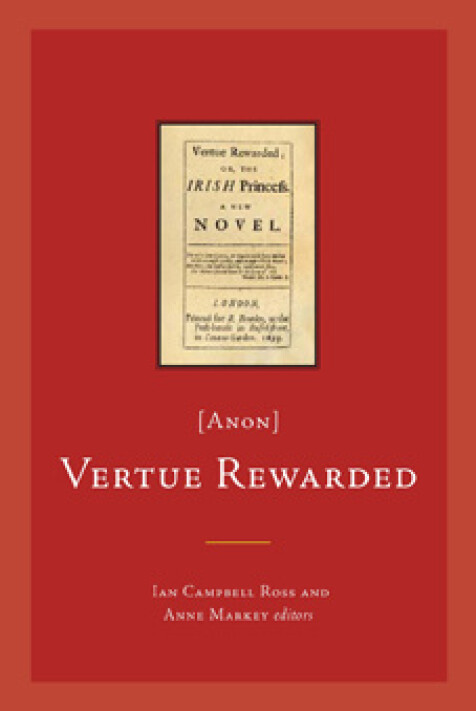Vertue rewarded; or, The Irish Princess (1693)
Ian Campbell Ross & Anne Markey, editors
Vertue Rewarded; or, The Irish Princess (1693) is one of the earliest examples of Irish prose fiction. Published in London, the novel is set in and around Clonmel, in August 1690, during the wars between the Jacobite James II and the Dutch Protestant William of Orange, later William III. Remarkably, the principal narrative concerning the young Irishwoman Marinda and the foreign Prince of S_______g, is interwoven with interpolated tales, including that of the Irish princess Cluaneesha, set in pre-Norman Ireland, and of the south American Indian Faniaca, whose story begins in Peru during the Spanish conquest of the Incas. Grounding its romance narrative in a detailed Irish setting, Vertue Rewarded draws American material from Royal Commentaries (1688), a translation by the diplomat and scholar, Sir Paul Rycaut, recently Chief Secretary for Ireland, of the Inca Garcilaso de la Vega’s account of native resistance to Spanish imperialism. The result is an engrossing mix of romance, history and alleged Irish folklore that invites comparison with Aphra Behn’s much better known Oroonoko; or, The Royal Slave (1688). This edition presents an original-spelling text, with an introduction and extensive annotation designed to make the book readily accessible to scholars, postgraduate and undergraduate students.
Ian Campbell Ross is Professor of Eighteenth-Century Studies, in the School of English, Trinity College Dublin. Anne Markey is Postdoctoral Research Fellow in Early Irish Fiction, in the School of English, Trinity College Dublin.

